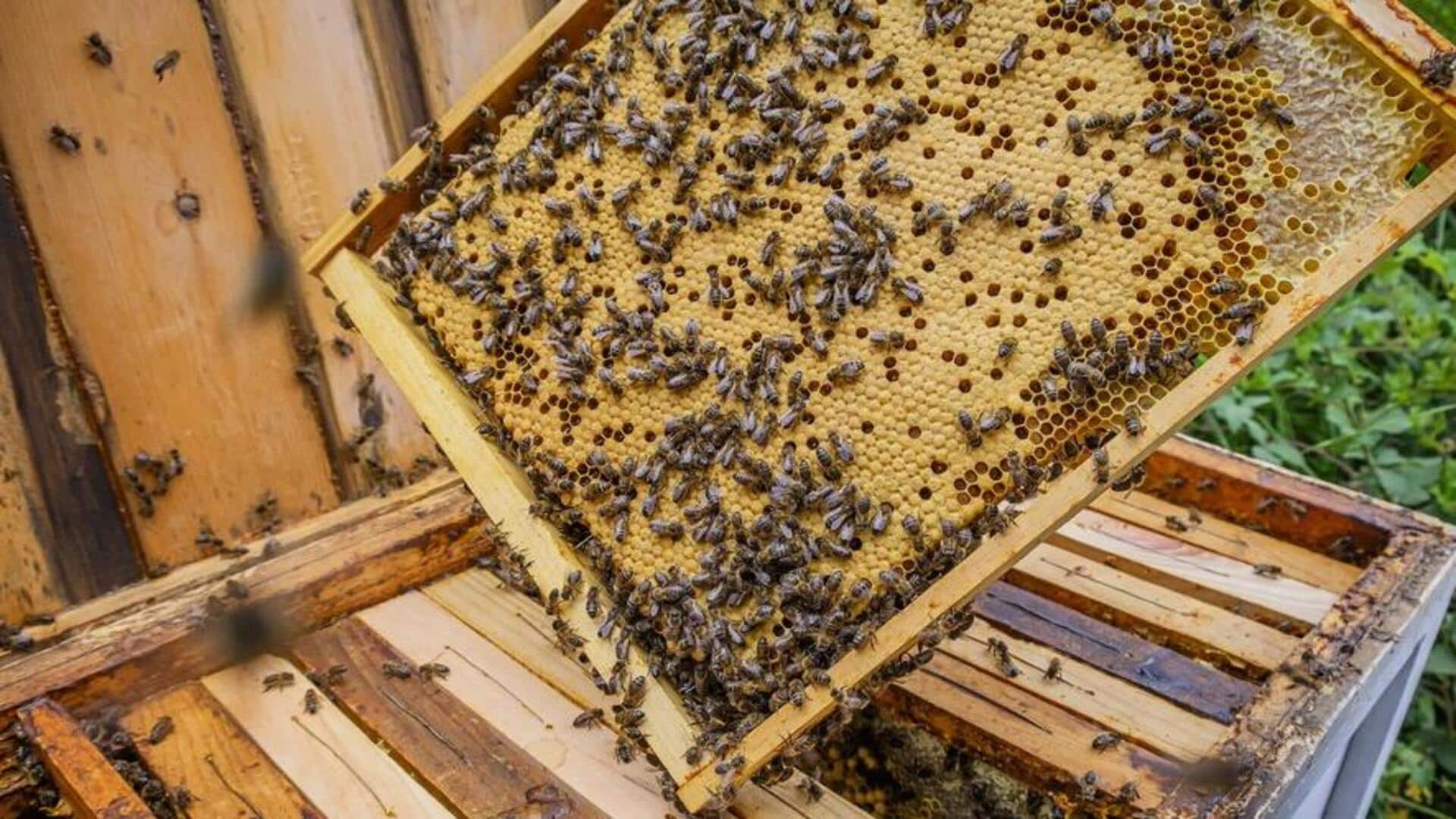
Expert reveals how beekeeping positively impacts our environment
What's the story
Beekeeping in India is an ancient practice that has its mention even in the Vedas and Buddist scriptures. While most of the country's beekeepers indulge in it to extract raw honey, many also attain bee wax to make cosmetic products and medicines. To understand how beekeeping positively impacts our environment, Dr. Yoginee Budhkar and Dr. Ashwini Deore, co-founders of Cerana Meads, shared their thoughts.
#1
Cross-pollination
Budhkar and Deore revealed, "Bees are essential pollinators, aiding in the reproduction of several species, including that of many crops as well." With that, "cross-pollination results in a robust agricultural produce and increased yield. This, in turn, ensures a stable food supply and biodiversity," they added. Hence, beekeeping strongly integrates forestry, agriculture, and the economy.
#2
Habitat conservation
Beekeeping also contributes to nature and habitat conservation to a good extent. Wondering how? Well, the doctor-duo explained, "Beekeeping involves preservation of bees as well as their natural habitat that includes wildflowers and flowering plants," which keeps the environment thriving and beautiful. This ensures the survival of several species of plants and flowers, thereby supporting and enhancing forest regeneration.
#3
Maintains biodiversity
There's no denying the fact that bees are an important part of our biodiversity. However, did you know that beekeeping also helps maintain it? "Bees play a role in maintaining diverse ecosystems by pollinating various plant species, supporting the broader health of the environment," shared the Cerana Meads co-founders. They ensure the survival of many plant species and a rise in new ones too.
#4
Economic and social benefits
According to a report published by the Government of India in 2022, there are about 12,699 beekeepers and 19.34 lakh honey bee colonies registered with the National Bee Board at present. Both Budhkar and Deore supported it by stating, "Beekeeping is economically viable, contributing to local economies and livelihoods and at the same time harnessing the resources in forests and ecosystems without harming them."
#5
Environmental sustainability
"Beekeeping leads to discouraging farmers from using harmful insecticides and pesticides and encourages them to be judicious about the use of toxic chemicals," explained the doctors. The foundation lies in protecting and maintaining healthy populations of indigenous honeybees and ensuring a good relationship between humans and bees. "This and the above advantages together constitute a strong contribution to environmental sustainability," they concluded.